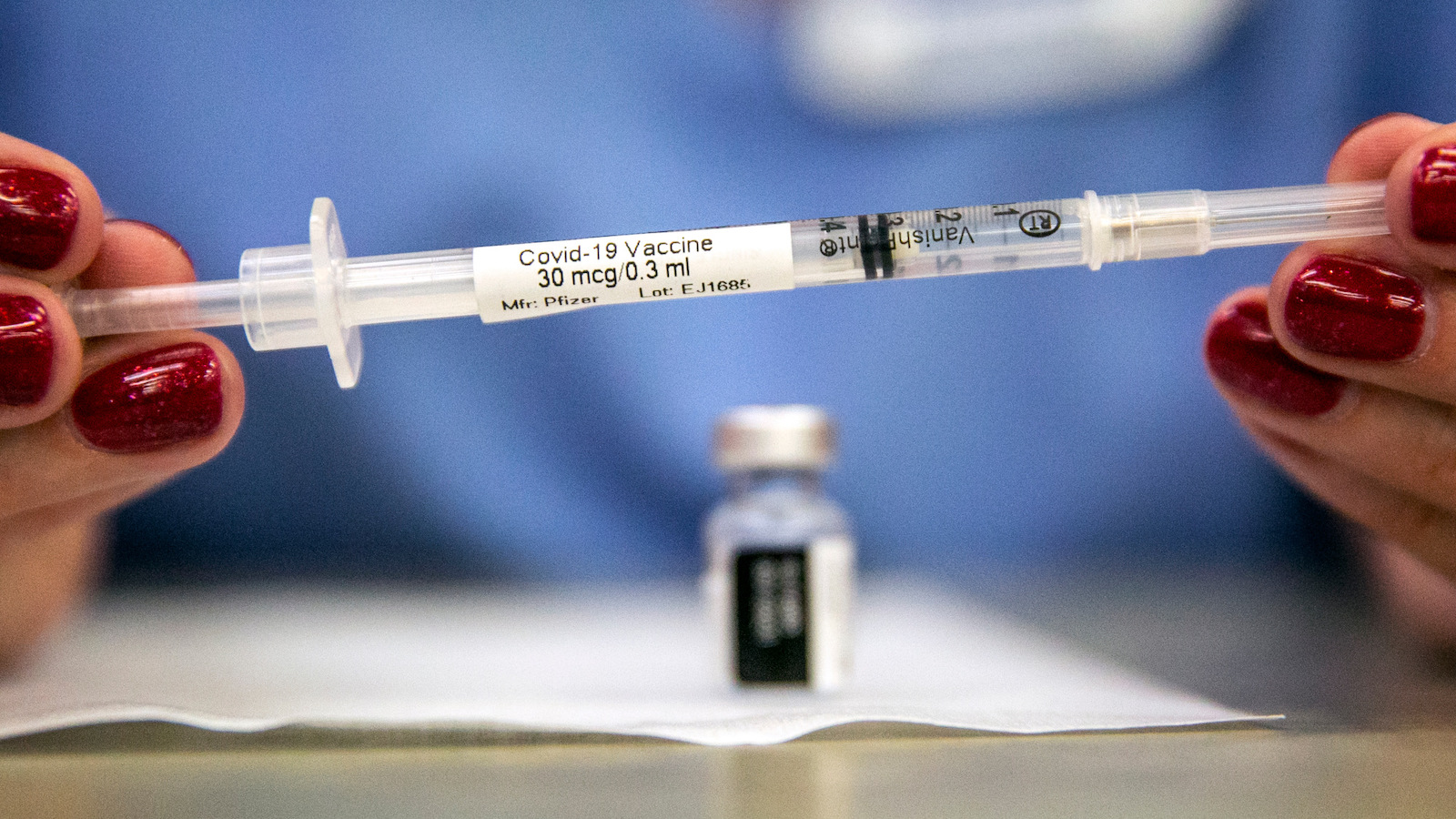
The Delusion of Dehumanizing ‘the Unvaccinated’ and the ‘Vaccine-Injured’
When I was in school, I was shy.
But I also shouted down a bully who was mocking a kid with special needs… in the middle of a crowded gym.
That’s who you’re dealing with.
Parallel to that microcosm, abuse is now rampant through near-global measures that many deem authoritarian and unethical. And anyone who dares diverge or speak out on the other side of the line risks public mockery.
During a segment on The Hill’s Rising, Kim Iversen questioned how we have gotten to this place. She pointed to the possibility of “mass formation psychosis,” or a mass gaslighting plaguing the Western World, and suggested there is some “-ism” causing the one-track-minded insistence that vaccination is the only route out of the pandemic.
That “-ism” might be “ableism,” defined as “discrimination or negative attitudes against people with disabilities.” This term has been used by people who are often (but not always) part of the same mob that shames people who are unvaccinated for COVID-19. Our fellows choose not to get vaccinated for a variety of reasons, including having certain disabilities and pre-existing conditions. Regardless, every human being deserves to be free from the abuse of power—a sentiment the mob sometimes shouts though rarely embodies.
(And frankly, if they think it is so foolish to question the safety of these novel vaccines and the ethics of mandates, it seems strange that they would treat people they believe to be intellectually disabled so poorly, but I digress.)
Tangential to the stigmatizing of people who are unvaccinated for COVID-19 is the shunning of people who are sharing stories of vaccine injury. Thousands of women, men, and children (such as 13-year-old Maddie de Garay) have been injured or disabled by a vaccine, some of whom stepped forward bravely in the early trials. Brianne Dressen described what it’s like to suffer adverse reactions and be widely dismissed: “We’re not seen. We’re not people. We’re invisible.”
While the injuries may be rare, that doesn’t make them any less real. Repeating that vaccines are safe casts their stories into the shadows, and perpetuating that partial truth with hubris creates an environment where even a child who is ill can receive death wishes on the screen of her smartphone. As it has become so taboo to even talk about the physical and mental well-being of someone who has reason not to champion the vaccine mandates, some of these people who are injured, sick, or disabled still aren’t getting the health care they need. And some grew to feel so lonely and hopeless that they have committed suicide.
The “vaccine-injured” are not just “collateral damage.” They are our fellow people.
Ableism might be one way to describe what’s happening, but I think it runs deeper in the delusion of dehumanization. One example is the policemen in Germany who attacked a man in a wheelchair for exercising his right to protest. This power grab is obvious, too, in the recent rhetoric used by French president Emmanuel Macron. He denounced people who are unvaccinated as “non-citizens,” and said, “I am not about pissing off the French people. But as for the non-vaccinated, I really want to piss them off. And we will continue to do this, to the [bitter] end. This is the strategy.”
Macron apparently does not want to anger “people” yet ruthlessly refers to the non-unvaccinated as if they are subhuman. Using the word “emmerder,” rooted in French word for “crap,” which means to rile or to bug, he is entering historically treacherous territory.
Likewise, the tone in much of corporate media, even when reporting with some balance, is very degrading. For instance, the subheading for the Huffington Post article “Emmanuel Macron Uses A Vulgarity To Berate France’s Unvaccinated People” reads: ‘French President Emmanuel Macron used salty language to describe his strategy for pressuring vaccine refusers to get coronavirus shots.’ Typically, the use of the phrase “salty language” connotes taking pleasure in the damage it could cause.
Name-calling is a basic middle school bullying tactic and, unfortunately, such sadism seems to be ruling much of the developing world. One reason why vaccine mandates may feel like discrimination to some is due to the hate fueled by and through them. So when I bring up the views of those who are unvaccinated, partially vaccinated, or injured, it is not to cause further confusion. It is with the intention of humanizing our fellows. Maybe if there was more interest in hearing where these voices are coming from, some of the regulations would still exist, however, there would be an atmosphere of greater understanding and a motivation to explore more testing and treatment options.
Despite these efforts, resistance to the true spirit of science still calls any research outside of the mainstream narrative “misinformation.” While it’s accurate that there may be content corrupted by agendas, to deem so many expert opinions invalid is lacking in reason. Many doctors, nurses, scientists, and public health professionals hold different views on the pandemic, many of whom deserve to be heard.
One such professional is Cory Zue, an MIT-educated man who works in public health and, after doing many hours of research, has decided not to get a COVID vaccine. Outlining his observations of the pandemic as an American living in South Africa where he witnessed months of the vaccine rollout before it was made available to him last July, Cory writes: “Something clearly different was happening in America. For reasons that were clearly not just about public health.”
Among other experts in our country, vaccine advocate Vinay Prasad, MD MPH questions why Dr. Fauci moved the herd immunity goal posts, doubts whether “the pandemic of the unvaccinated” is helpful framing, asks if or how young children and adolescents should be boosted, analyzes the CDC director’s errors regarding myocarditis, and along with UCSF ER doctor Dr. Jeanne Noble raises concerns about reactionary policy making and the staffing shortages at some hospitals caused by the firing of unvaccinated healthcare workers. Dr. Christina Parks, whose PhD is in molecular and cellular biology, testified that the mandates proposed by Michigan’s House Bill 4471 were based on the false assumption that the vaccines were designed to prevent transmission, evoked images of black-white racial segregation when speaking to the implications of medical segregation, and emphasized that Black Americans and PhD’s like herself are the most vaccine-hesitant. Molecular biologist Dr. Aditi Bhargava, the director of laboratory research at UCSF that develops mRNA technology, cautions against continuing with the narrative that the vaccines are completely safe and, while remaining an advocate for vaccination, raises awareness of the danger that mass vaccination could be putting evolutionary pressure on the coronavirus to mutate.
And Dr. Ron Elfenbein, the medical director and CEO of FirstCall Medical Center in Gambrills, Maryland, warned that the federal government’s decision to pause the distribution of monoclonal antibody treatments could cost lives—substantiating concerns about the legitimacy of our country’s leadership.
Particularly in the United States, it seems no matter how many risk their reputations to speak their consciences, that despite the exodus of medical professionals leaving their jobs and some doctors even losing their licenses, such expertise has not yet penetrated the prevailing sect of science that drives public policy and wields shame as a tool of suppression. How can mandates be for “the common good” if they scapegoat, isolate, and abuse a supposed second-class group of people?
The hunger for punitive measures is real, but the façade of certainty is fading. Part of the human experience, and science itself, is embracing the unknown, so to heal as many people as possible, it is becoming clearer that knowing one’s audience makes for better policy that addresses a wider range of concerns and solutions.
Such freedom is partially reflected in the Supreme Court’s recent rulings. “By a vote of 6-3, in NFIB v. OSHA, the Court ruled against the Occupational Safety and Health Administration’s Emergency Temporary Standard vax-or-test rule for large employers,” reports Reason. “Yet by a vote of 5-4, in Biden v. Missouri, the Court agreed to stay lower court injunctions against the Center for Medicare and Medicaid Services vaccine mandate for Medicare and Medicaid service providers.”
The Court allowed a vaccine mandate for healthcare workers who can still apply for medical and religious exemptions at the hospitals where they are currently employed, but, in the framework of our current healthcare system, these workers are not guaranteed the ability to apply for exemptions if they seek a new job at a different hospital.
As many turned toward this branch of government to determine their fate, Prasad pointed out that “Omicron struck down vaccine mandates, not the Supreme Court.” This is a sobering stance. The breadth of science creates an opportunity to salvage our common humanity—to couple compassion with humility.
Wading in the unknown, the bottom line, for me, is: Every human being is worthy of mercy and to be free from abuse regardless of their health choices. The human needs to be seen, heard, and believed are the bare minimum, and having social support is essential to both mental and physical health. Denouncing another’s story as misinformation, without even taking time to really listen to it, and calling droves of people misguided, misled, or misinformed treads deep, dark water.
I may not be a scientist or a politician, but I am a writer and I know stories. Human beings are made of stories. When one idol worships certain stories and humiliates others, it is an insult to humanity’s potential.
That said, we all want this to be over. Perhaps that desire is a mass formation of its own. Whether you are holding the line and refusing the vaccine or lying in bed with COVID again while a doctor on YouTube gaslights you to believe it’s impossible to catch this virus twice, you are likely at your wits’ end.
And during a time of fear, it’s understandable that there would also be a heightened desire for safety. The virus has caused so much suffering. We are grappling with a lot. There are profound concerns for the sanctity of our bodies, our minds, and our souls.
One way to forge forward is to seek ways to open up the dialogue, not close it.
Breaking free from the constant constriction of information may offer a new level of liberty in which we stop scapegoating inconvenient stories and instead reckon with the full truth.
The truth is a hard pill to swallow. It is a delusion that you would have chosen differently had you walked in the shoes of someone who is vaccine-hesitant or that you would have stayed silent if you suffered a vaccine injury, or for that matter that you would have behaved perfectly had you been in the boots of a high-powered policy maker. None of us are immune to the human condition in a culture of suspicion, division, and abuse. The delusion of dehumanization can cloud anyone’s ability to see what’s right in front of them.
Recently, I had the pleasure of interviewing Charles Eisenstein about this phenomenon. Descendant of Russian and Polish Jews, he raises concerns about the demonization of people who are unvaccinated for COVID-19 and analyzes the patterns of scapegoating and fanaticism throughout much of the world’s history—from the witch trials to the Holocaust to 9/11. Watch our episode on Free the People’s Leaving the Left for Liberty.
Free the People publishes opinion-based articles from contributing writers. The opinions and ideas expressed do not always reflect the opinions and ideas that Free the People endorses. We believe in free speech, and in providing a platform for open dialogue. Feel free to leave a comment.



